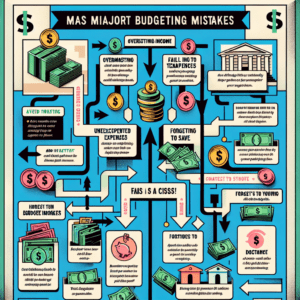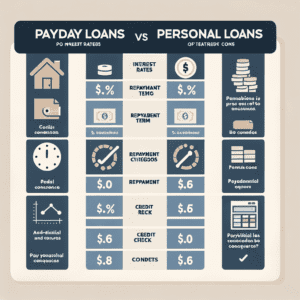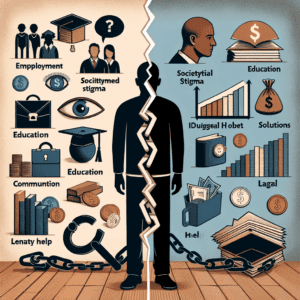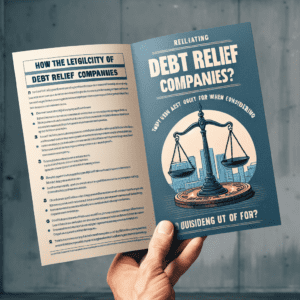“Fake Reviews, Real Consequences – Can You Trust What You Read?”
The Rise of Fake Online Reviews: How They Impact Consumer Trust
In the digital age, online reviews have become a crucial factor in shaping consumer decisions. Whether purchasing a product, booking a hotel, or selecting a restaurant, potential buyers often rely on the experiences and opinions of others to guide their choices. However, as the influence of online reviews has grown, so too has the prevalence of fake reviews, raising serious concerns about their impact on consumer trust. The rise of fraudulent reviews has led to legal battles and regulatory efforts aimed at curbing deceptive practices, but the question remains: can consumers truly trust what they read online?
The increasing reliance on online reviews has created a lucrative market for businesses seeking to enhance their reputations. Some companies resort to unethical tactics, such as paying individuals to write positive reviews or posting negative reviews about competitors. These deceptive practices not only mislead consumers but also distort fair competition, giving dishonest businesses an unfair advantage. As a result, consumers may purchase subpar products or services based on misleading information, leading to dissatisfaction and financial loss.
Moreover, the widespread presence of fake reviews undermines the credibility of legitimate feedback. When consumers suspect that reviews may be fabricated, they may begin to question the authenticity of all online opinions, even those that are genuine. This erosion of trust can have long-term consequences for businesses that rely on customer feedback to build their reputations. If consumers lose confidence in online reviews, they may turn to alternative sources of information, such as personal recommendations or expert opinions, reducing the effectiveness of review platforms.
In response to these concerns, governments and regulatory bodies have taken steps to combat fake reviews. Various countries have introduced laws that prohibit businesses from posting deceptive reviews or hiring individuals to write misleading content. In some cases, companies found guilty of engaging in such practices have faced significant fines and legal penalties. Additionally, major online platforms, including Amazon, Google, and Yelp, have implemented stricter policies and advanced algorithms to detect and remove fraudulent reviews. These efforts aim to restore consumer trust by ensuring that online reviews accurately reflect real customer experiences.
Despite these measures, the fight against fake reviews remains an ongoing challenge. As technology evolves, so do the tactics used by those who seek to manipulate online ratings. Some businesses employ sophisticated methods, such as using artificial intelligence to generate realistic-sounding reviews or creating fake accounts to post fabricated feedback. This constant adaptation makes it difficult for regulators and platforms to stay ahead of fraudulent activities. Consequently, consumers must remain vigilant and develop strategies to identify potentially deceptive reviews.
One approach to assessing the reliability of online reviews is to look for patterns that may indicate manipulation. For instance, an overwhelming number of overly positive or negative reviews posted within a short period could suggest artificial inflation or defamation. Additionally, consumers can cross-reference reviews across multiple platforms to identify inconsistencies. Reading detailed, balanced reviews that provide specific information about a product or service can also help distinguish genuine feedback from generic or exaggerated claims.
Ultimately, while legal and technological efforts continue to address the issue of fake online reviews, consumer awareness remains a critical factor in maintaining trust. By staying informed and exercising caution, individuals can make more informed purchasing decisions and contribute to a more transparent online marketplace.
Legal Battles Against Fake Reviews: Key Cases and Precedents

The rise of e-commerce and digital platforms has made online reviews a crucial factor in consumer decision-making. However, the prevalence of fake reviews has led to significant legal battles, as regulators and businesses seek to protect consumers from misleading information. Courts and regulatory agencies worldwide have taken action against individuals and companies that manipulate online reviews, setting important legal precedents in the process. These cases highlight the growing recognition of the harm caused by deceptive practices and the need for stricter enforcement to maintain trust in online marketplaces.
One of the most notable legal actions against fake reviews involved the Federal Trade Commission (FTC) in the United States. In 2019, the FTC brought its first case against a company for paying for fake reviews on a third-party platform. The case targeted Cure Encapsulations, a dietary supplement company that had hired a third-party service to post fabricated positive reviews on Amazon. The court ruled in favor of the FTC, ordering the company to pay $12.8 million in penalties. This case set a significant precedent, demonstrating that businesses engaging in deceptive review practices could face substantial financial consequences.
Similarly, in Europe, authorities have taken steps to combat fraudulent reviews. In 2022, the European Commission and national consumer protection authorities conducted a sweep of online platforms and found that nearly two-thirds of the websites examined failed to ensure the authenticity of reviews. This led to increased scrutiny and enforcement actions under the European Union’s Unfair Commercial Practices Directive. Companies found to be hosting or facilitating fake reviews faced legal consequences, reinforcing the principle that misleading consumers through fabricated endorsements is a violation of consumer protection laws.
Beyond regulatory actions, private lawsuits have also played a role in shaping the legal landscape. In one high-profile case, Amazon sued several websites that offered fake review services, arguing that they were undermining the integrity of its platform. The lawsuits resulted in court orders shutting down these operations, sending a strong message that platforms are willing to take legal action to protect their credibility. Similarly, TripAdvisor has pursued legal action against businesses that attempt to manipulate their ratings through fraudulent reviews. In one case, an Italian court sentenced the owner of a fake review company to nine months in prison, marking one of the first instances of criminal penalties for such practices.
These legal battles underscore the increasing recognition of fake reviews as a serious issue that can mislead consumers and distort market competition. As a result, governments and regulatory bodies continue to refine their approaches to enforcement. In the United Kingdom, for example, the Competition and Markets Authority (CMA) has investigated major online platforms to ensure they have adequate measures in place to detect and prevent fake reviews. The CMA has also warned businesses that failing to address fraudulent reviews could result in legal action, further emphasizing the importance of compliance.
While these legal actions represent progress, challenges remain in fully eradicating fake reviews. The anonymity of online platforms and the global nature of e-commerce make enforcement difficult, as fraudulent review operations can easily relocate or disguise their activities. Nevertheless, the growing number of legal cases and regulatory efforts signal a shift toward greater accountability. Consumers, businesses, and regulators must continue working together to ensure that online reviews remain a reliable source of information rather than a tool for deception.
Protecting Consumers: How to Spot and Report Fake Online Reviews
The prevalence of online reviews has made them a crucial factor in consumer decision-making, influencing everything from restaurant choices to major purchases. However, the rise of fake reviews has created a significant challenge, making it difficult for consumers to determine which opinions are genuine and which are fabricated. Businesses and individuals alike have been caught manipulating reviews to enhance their reputations or damage competitors, leading to legal battles and regulatory scrutiny. As a result, protecting consumers from deceptive practices has become a priority, and understanding how to identify and report fake reviews is essential.
One of the most effective ways to spot fake reviews is to look for patterns that suggest inauthenticity. Reviews that are overly positive or negative, without providing specific details about the product or service, may be suspicious. Similarly, if multiple reviews use identical or highly similar language, it could indicate that they were generated by automated systems or written by the same individual. Another red flag is an unusual spike in reviews within a short period, which may suggest an orchestrated effort to manipulate ratings. Consumers should also be wary of reviewers who have only posted a single review or have a history of leaving extreme ratings without substantive explanations.
In addition to analyzing the content of reviews, consumers can use various tools and platforms to verify their authenticity. Some websites employ algorithms to detect suspicious activity, flagging reviews that appear to be fraudulent. Third-party services also offer review analysis, helping users determine whether feedback is likely to be genuine. Furthermore, checking multiple sources can provide a more balanced perspective, as fake reviews are less likely to be uniformly distributed across different platforms. By cross-referencing information, consumers can make more informed decisions and reduce the risk of being misled.
When encountering a review that appears to be fake, reporting it is a crucial step in maintaining the integrity of online platforms. Most review websites have mechanisms for flagging suspicious content, allowing users to submit concerns for further investigation. Providing specific reasons for suspicion, such as repetitive language or an unusual posting pattern, can help moderators assess the validity of the claim. Additionally, regulatory bodies such as the Federal Trade Commission (FTC) in the United States accept complaints about deceptive business practices, including fake reviews. By reporting fraudulent activity, consumers contribute to a more transparent marketplace and help prevent others from being misled.
Legal actions against fake reviews have increased in recent years, with authorities and businesses taking steps to hold offenders accountable. Companies found guilty of posting or soliciting fake reviews may face fines, lawsuits, and reputational damage. In some cases, individuals who write fraudulent reviews in exchange for compensation have also been prosecuted. These legal efforts aim to deter deceptive practices and reinforce the importance of honest feedback in online commerce. However, enforcement remains a challenge, as fake reviews continue to evolve in sophistication.
Ultimately, while fake reviews pose a significant threat to consumer trust, awareness and vigilance can help mitigate their impact. By learning to recognize suspicious patterns, utilizing verification tools, and reporting fraudulent content, consumers can play an active role in promoting authenticity. As legal measures continue to strengthen, the fight against fake reviews will remain an ongoing effort, ensuring that online platforms provide reliable and truthful information for all users.
















